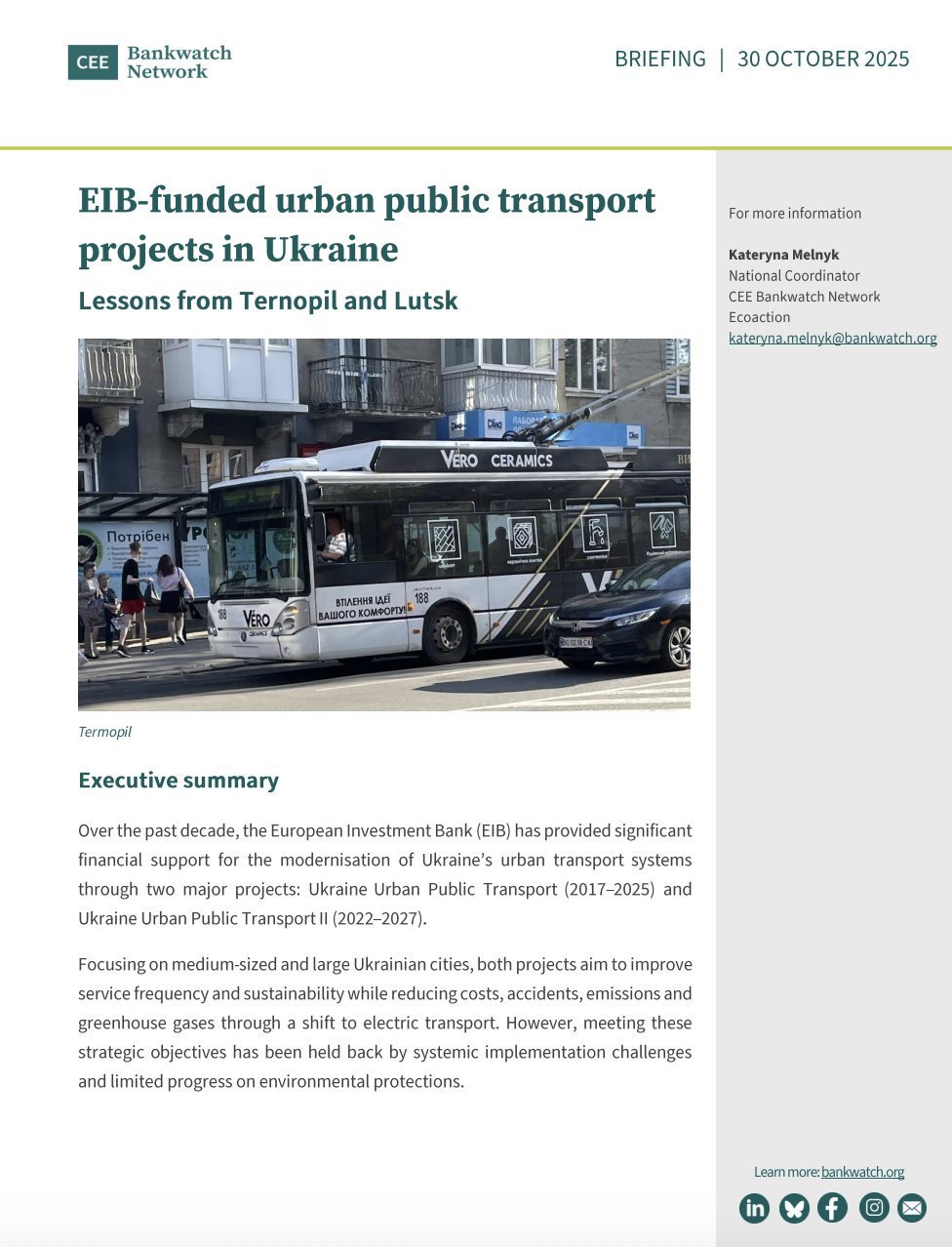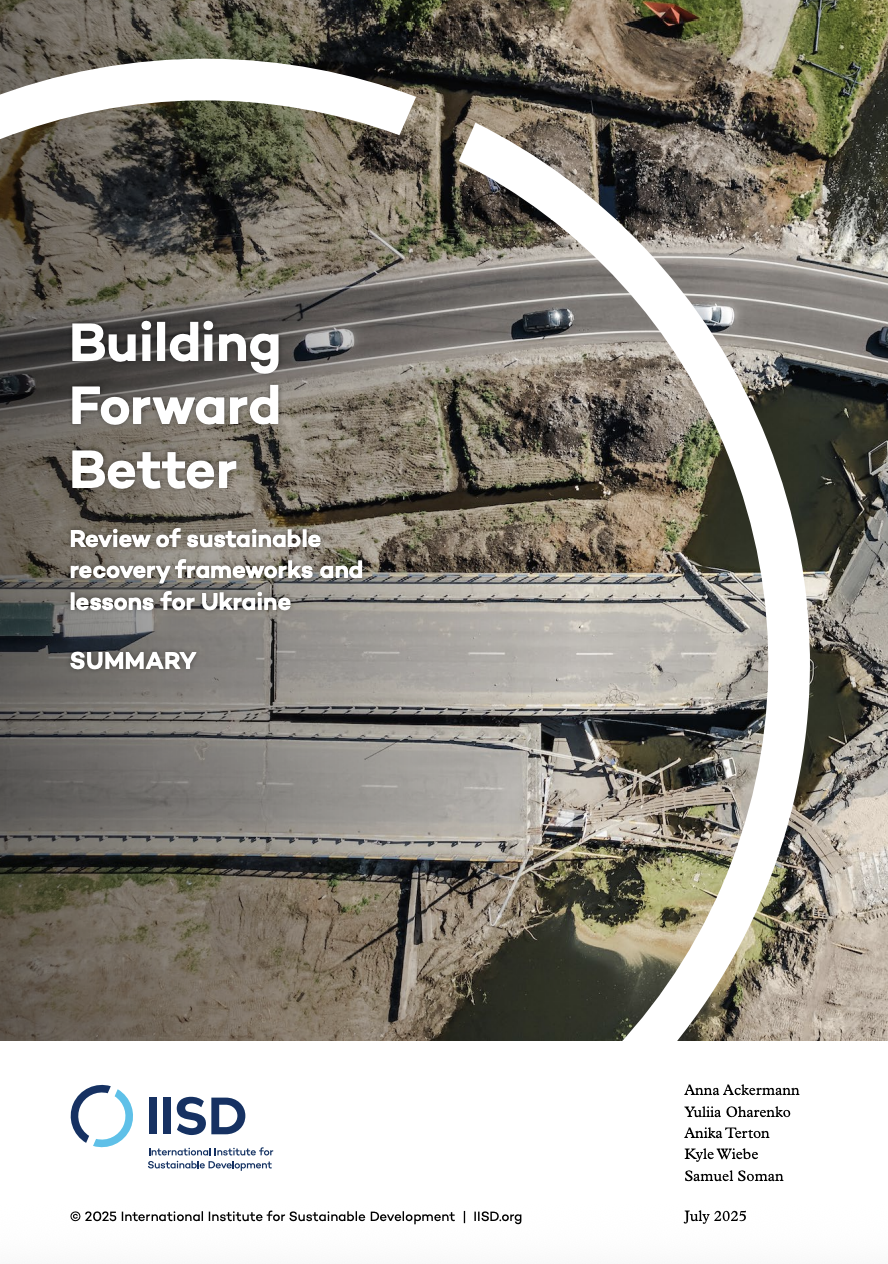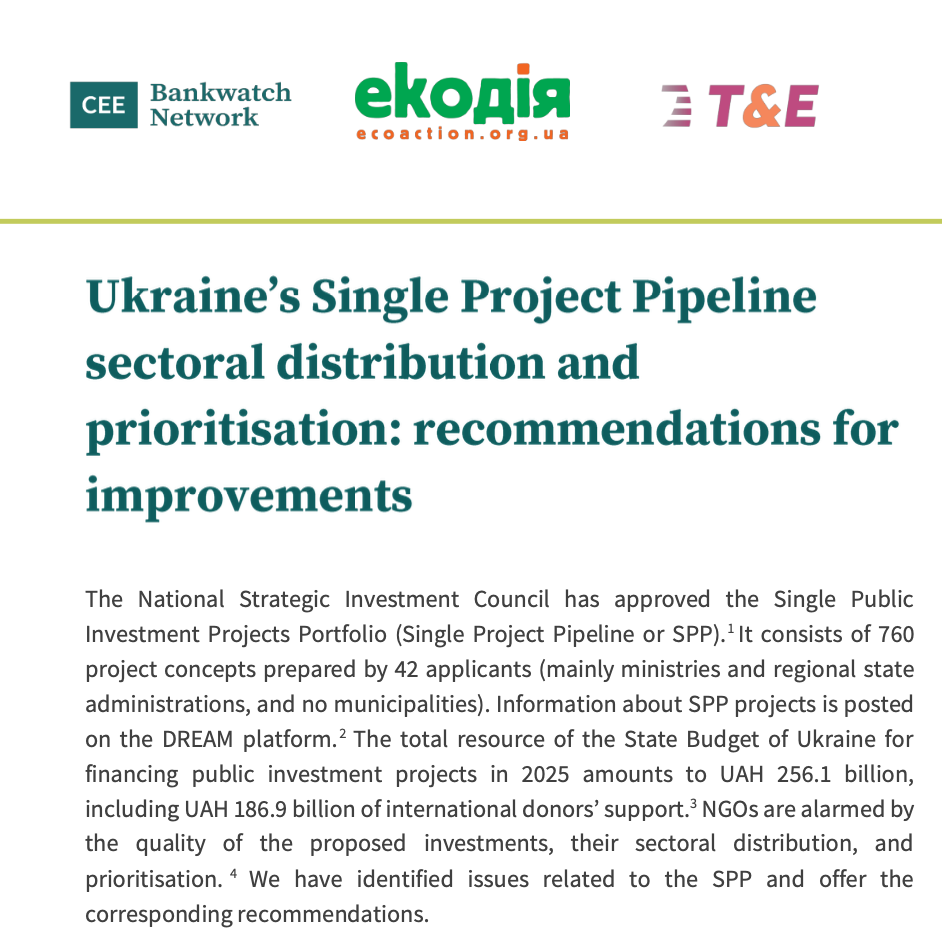Search by key words or by sector (energy, climate, buildings, agriculture, industry, environment, finance, EU accession etc)

Rebuilding Ukraine: Strategic Priorities
Ukraine will require Europe’s largest reconstruction effort since World War II, with needs estimated at 524 billion US dollars. A new policy brief by LibMod and United Ukraine outlines strategic priorities that go beyond restoration to transformation, creating mutual benefits for Ukraine and Europe.

EIB-funded urban public transport projects in Ukraine: Lessons from Ternopil and Lutsk
In recent years, the European Investment Bank (EIB) has provided significant financial support aimed at modernising Ukraine’s urban transport systems. However, implementation challenges and major delays have stalled progress.

Building Forward Better: Review of sustainable recovery frameworks and lessons for Ukraine
This report summary reviews global sustainable recovery frameworks and draws lessons for Ukraine's reconstruction. It highlights the importance of embedding sustainability and resilience across governance, planning, and finance systems, aligning with EU standards, strengthening local capacity, and integrating green certification and climate safeguards into infrastructure rebuilding efforts.

Strengthening Ukraine’s wind projects: Insights from the Galnaftogaz experience
This paper analyses procedural and technical issues with the Galnaftogaz wind project in Ukraine, backed by the European Bank for Reconstruction and Development.

District heating projects financed by the EBRD in Ukraine
This briefing examines EBRD-financed district heating projects in Western Ukraine, particularly in Ternopil and Lutsk, and identifies key challenges, including implementation delays, over-reliance on unsustainable biomass, and insufficient climate ambition.

Reforming public investment management in Ukraine: An analysis of Ukraine’s Single Project Pipeline

Ukraine’s Single Project Pipeline sectoral desitribution and prioritisation: recommendations for improvements
This briefing prepared by Bankwatch, T&E and Ecoaction examines Ukraine’s Single Public Investment Projects Portfolio, highlighting concerns over project quality and prioritisation. Key issues include database inconsistencies and limited local government involvement. Recommendations urge better alignment with EU standards and increased municipal participation to enhance the effectiveness and sustainability of public investments.

European Investment Bank in Ukraine (2022-2024): Some findings and challenges

The Czech and EU Approach to Ukraine’s Reconstruction: Struggling with Sustainability
This report by AMO discusses approach of Ukraine, EU and Czechia towards the green recovery, particular initiatives, but also persisting challenges. They identify Poland and Germany as an examples of good practice and recently approved Ukraine facility as a key instrument for the process of recovery. Czechia, despite allocating only limited own resources and paying less attention to the green recovery, remains committed to supporting Ukraine and is strong in seeking alliances for its initiatives.